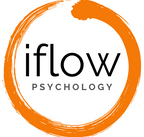Addiction is a complex and chronic condition that affects millions of people worldwide. It is characterized by compulsive drug-seeking behavior, despite the negative consequences that often result from substance abuse. Understanding the cycle of addiction is crucial in order to break free from its grasp and embark on the road to recovery.
The cycle of addiction typically begins with initial experimentation with substances such as drugs or alcohol. For many individuals, this may start innocently enough, perhaps as a way to cope with stress or social anxiety. However, as tolerance builds and the need for the substance increases, the individual may find themselves using more frequently and in larger quantities.
As the addiction progresses, the individual may begin to prioritize obtaining and using the substance above all else. This can lead to a host of negative consequences, including strained relationships, financial difficulties, and health problems. Despite these negative outcomes, the individual may feel powerless to stop using, as the substance has hijacked the brain’s reward system and created a powerful drive to continue using.
Breaking free from the cycle of addiction is a challenging and often painful process. It requires a combination of self-awareness, support from loved ones, and professional help. One important step in the road to recovery is seeking out a psychologist who specializes in addiction treatment. A psychologist can help individuals understand the root causes of their addiction, develop coping strategies to manage cravings and triggers, and provide ongoing support as they work towards sobriety.
In therapy, individuals can explore the underlying psychological factors that may be contributing to their addiction. This could include past trauma, unresolved emotional issues, or co-occurring mental health conditions such as depression or anxiety. By addressing these underlying issues, individuals can begin to heal from the pain that may have been driving their addiction.
Additionally, a psychologist can help individuals develop healthy coping mechanisms to manage stress and other triggers that may lead to substance abuse. This could include mindfulness techniques, behavioral therapies, and relapse prevention strategies. By learning how to effectively manage cravings and triggers, individuals can increase their chances of long-term sobriety.
Recovering from addiction is a journey that is unique to each individual. It requires dedication, perseverance, and a willingness to confront difficult emotions and experiences. By seeking out a psychologist who specializes in addiction treatment, individuals can gain the support and guidance they need to successfully navigate the road to recovery. If you or someone you know is struggling with addiction, don’t hesitate to reach out and find a psychologist who can help. The path to recovery may be challenging, but with the right support, it is possible to break free from the cycle of addiction and reclaim a life of health and happiness.
************
Want to get more details?
iflow Psychology
https://www.iflowpsychology.com.au/
0431564257
48 Norton Street Leichhardt NSW 2040 AUSTRALIA
Welcome to iflow Psychology, your trusted and reliable psychology clinic in the Inner West suburb of Leichhardt, Sydney. We offer confidential and culturally sensitive in-person psychological services that cater to all your mental health and well-being needs. We are committed to providing quality services that will help you achieve your goals and lead a fulfilling life. We also offer telehealth and telephone psychology services to ensure that you have access to our services no matter where you are located in NSW.
Our experienced psychologists provide a range of mental health treatments that cater to your individual needs. Whether you need a mental health assessment, are experiencing signs and symptoms of mental health issues, or need relationship counselling, we are here to help.

